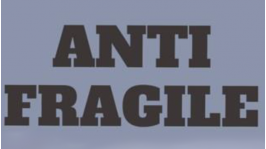Неэргодическая экономика
Авторский аналитический Интернет-журнал
Изучение широкого спектра проблем экономики
На английском языке
The article investigates issues concerning the development of countries amid geopolitical turbulence. In particular, it is shown that the development of the world economic system has two phases: monocentricity, with a leader country and the world order it has established; and multipolarity with an increasing chaos and the struggle of many countries for the reconstruction of the world. These processes are based on scale effect, which at the stage of multipolarity operates in the external sphere in the form of territorial expansion, and at the stage of monocentricity – in the internal sphere in the form of technological innovations within the corporate sector of individual countries. The paper considers the restoration of the phenomenon of strategic advantages, which barely manifested itself in the geopolitical space for a long time. To explain the cyclical rising of this effect, we introduce the concepts of independent (natural) and controlled (artificial) development instead of the concepts of outstripping development and catching–up development that are fading into the background; we show that artificial development exists in the form of acceleration and containment. This made it possible to put forward a political model of sovereignty “leader – satellites/opponents – neutral zone” instead of I. Walierstein’s technological model “core – semi–periphery – periphery”. We propose and substantiate a quantitative criterion for strategic advantages, according to which they are observed under multiple differences (twofold or more) in the economic indicators of the compared countries. The framework study uses five indicators: area, GDP, population, technology level (GDP per capita), availability of nuclear weapons; the first four parameters are assessed quantitatively with the help of strategic advantages index; the fifth parameter is assessed qualitatively. We consider examples of the phenomenon of strategic advantages for bilateral relations: Azerbaijan/Armenia; Russia/Ukraine; South Korea/North Korea; India/Pakistan, etc. We also reveal the significance of this effect for Russia’s long–term foreign policy strategy.
09.10.2024
In the face of large–scale international sanctions imposed by the collective West against Russia, it becomes imperative to reevaluate the conventional framework for guiding the Russian economy amid the emerging challenges and limitations. The article explores a multilevel system for managing Russian economy in the context of the global confrontation. The methodological foundation resides in the selective “incremental changes ideology” emphasising the necessity for disaggregation and decentralisation of economic policies to maximise the timeliness of managerial decisions. This approach contrasts with the holistic “total regulation ideology”, which focuses on the national development strategy on planning and reaching aggregate economic indicators. The paper applies the methods of traditional structural cybernetic and graphical modelling of social systems allowing for the specificities of the external environment. The evidence comes from a cluster of the most recent studies approaching the role of the international sanctions phenomenon in building an efficient national economy from different angles. The author presents an original graphical four–circuit concentric model complemented by a functional description of its constituent circuits (the core, priority industries, new production, and supporting industries) and management methods. The article provides examples of the management measures (massive centralised lending for new microchip production, creation of the state corporation Rospharma, etc.) that can be implemented within the four circuits of the model. These measures can be both soft (‘weak’) and hard (‘strong’) depending on whether they reject or take on administrative enforcement. It is noteworthy that the selective governance model will gradually evolve into a holistic model over time.
04.07.2024
The article considers the influence of the elites on the evolutionary process and the current global upheavals that have evolved into a confrontation between two megacivilizations (West and Non–West), which threatens humanity with extinction. The aim of the study is to try and answer the questions whether these processes were to be expected; whether they correspond to the general principles of social development or are a coincidence. The research on the elites in the context of a civilizational approach and combining it with the concept of democracy allowed D. Zolo to build an elite model of civilization development, linking three components: stages of civilization development, type of elite, and form of government. It has been established that as civilization develops (from its inception to its demise), the elite moves from power forces to its supranational form, and this movement is accompanied by the transformation of forms of government from anarchy to tyranny. It is shown that the period of the heyday of a civilization coincides with the period of the rule of national elites; as soon as the elite loses the quality of national power and becomes supranational, the civilization starts declining. The source of the evolutionary development of a civilization is the creative potential of the elite, the vital energy of which is found in the passionarity of the ethnic group, “triggered” by the action of the hypercompensation mechanism based on A. Toynbee’s “Challenge–and–Response” principle, which may not work in the case of the rule of the supranational elite. An assessment of the current state of the Western elite has shown its supranational nature and the worsening process of degradation accompanying the decline of Western civilization. This corresponds to the paradox of lagging behind, according to which a civilization that is more advanced in terms of technological development finds itself in a state of spiritual crisis and disintegration earlier. From this point of view, the unfolding confrontation is a clash between the supranational elite and its national opponents, who defend the traditional values and interests of their own countries. The novelty of the research lies in the construction of an elite model of the development of civilization, and in the consideration of a structural model of an evolutionary leap in the case of the rule of supranational elites.
07.06.2024
The article puts forward a new version of elite theory based on the use of a macroeconomic production function depending on the number of the elites and the masses. At the same time, the production function of the elites is complemented with the distribution function, which determines the income structure of social groups and the level of inequality. Combining the two sides of the activity of the elites allows us to design a simple typology of political situations in the country and highlight the regime of revolutionary situation. A formal analysis of the model of production activity of the elites has shown that the phenomenon of over–accumulation of the ruling class has a noticeable destructive impact on economic growth only after a severe drop in its functioning effectiveness. The very deterioration of the quality of the political elite allows an unjustified increase in its size to manifest itself. We consider generalizations of elite model in relation to the case of the middle class and show the invariance of the previously obtained conclusions. We provide an interpretation of the macro–theory of the elites for the mega–level, when studying the world economic system as a combination of the center, periphery and semi–periphery. We consider four dimensions of the elite, with system paradigms being a new element within these dimensions. The influence of external historical events on the worldview of the elites and their actions is revealed using the examples of the transformation of the Roman Republic into the Roman Empire, the collapse of the USSR and the beginning of the fall of the U.S. hegemony. For the center – periphery system, we test the production model of the elites with the help of statistical data from the World Bank; we build econometric dependencies that show a decrease in the effectiveness of the United States in managing global production.
07.06.2024
The article considers the opportunities and limitations of the so-called “People’s capitalism model” (PCM). For this purpose, the authors systematize the historical practice of implementation of PCM in different countries and available empirical assessments of the effectiveness of such initiatives. In addition, the authors undertake a theoretical analysis of PCM features, for which the interests of the company and its employees are modeled. The analysis of the model allowed us to determine the conditions of effectiveness of the people’s capitalism model, based on description which we formulate proposals for the introduction of a new initiative for Russian strategic enterprises in order to ensure Russia’s technological sovereignty.
14.02.2024
The paper assesses the effectiveness of the Russian pharmaceutical industry so as to determine the prospects for achieving self–sufficiency in drug provision and pharmaceutical leadership in the domestic market, more than half of which is occupied by foreign drugs. Effectiveness is considered in terms of achievements in import substitution (catching–up scenario), and in the development of domestic drugs (outstripping scenario). A comparison of the main economic indicators for leading foreign and Russian pharmaceutical companies reflects a disadvantaged position of the latter. The governmental target setting for domestic pharmaceutical production is compromised by interdepartmental inconsistency in the lists of essential drugs. A selective analysis of the implementation of the import substitution plan by the Ministry of Industry and Trade of Russia since 2015 has revealed that, even on formal grounds, Russia still has not established a full–fledged production of many drugs (in particular, the dependence on foreign active pharmaceutical substances still remains, and there are very few domestic manufacturing companies). The premise concerning fundamental impossibility to implement the outstripping scenario is substantiated by the fact that there is an insignificant number of original drugs for which Russian developers initiated clinical trials in 2020–2022. The results obtained show that the current situation in the Russian pharmaceutical industry does not promote the achievement of drug self–sufficiency. A proposal to consolidate assets, coordinate production programs and research agendas for accelerated and full–fledged import substitution was put forward. Prospects for research in the field of import substitution are related to deepening the analysis of production indicators, increasing sales, as well as enhancing clinical characteristics of reproduced drugs compared to foreign analogues. In the sphere of analyzing the innovativeness of pharmaceutical production, it seems advisable to methodologically elaborate on identifying original drugs and include this indicator in the industry management.
08.02.2024
Within the framework of the article, we assess regions and countries that in the future may become new foci of economic and civilizational activity. This issue is relevant because many countries are now witnessing the exhaustion of demographic growth opportunities, which in turn will hinder intensive economic growth in them. To address the issue, we propose a two–stage econometric modeling procedure. The first econometric dependence links population growth rate with total fertility rate, and the second dependence reveals the impact of economic, institutional and cultural factors on fertility rate. Empirical testing of models was performed for a sample of 15 countries (Russia, Ukraine, Kazakhstan, Kyrgyzstan, France, Germany, Iran, Japan, China, Mexico, Egypt, Great Britain, USA, Canada and Australia) and showed high productivity and invariance of the proposed model scheme. Based on the constructed models, we put forward several quantitative characteristics of national demographic regimes. The most important of them is the long–term demographic effect of scale, taking into account the reaction of the population to the growth of per capita welfare. Applied calculations show that the U.S. still has the potential to maintain its growth regime for quite a long time, while China, Japan and Germany have almost exhausted this resource. The most likely foci of a new round of development of human civilization may be Russia, Kazakhstan and Iran, which, taking into account neighboring countries, form a kind of regional cluster in the center of Eurasia. It is in this area of the planet that we should expect the greatest economic and political activity in the next two to three decades.
04.12.2023
The paper discusses the capabilities of the Russian monetary system for massive lending to new industries that are of strategic importance to the country and contribute to its technological sovereignty. The key provisions of monetary theory and the concept of multiplier constitute the theoretical basis of the study. Modelling transient processes was used as the main research method. Empirical evidence is official data from the Bank of Russia and the Federal State Statistics Service (Rosstat), as well as industry reports on the global semiconductor market. The authors propose their own model of the transition process, which allows assessing the possible inflation rate and economic growth generated by massive credit investments. Testing the model in the microelectronics industry showed that assumptions about the Bank of Russia possibly losing its control over inflation due to a large–scale lending are unfounded. Even during the first two years, when the construction of a new enterprise is underway and there is an obvious imbalance between the product and money supply, the additional inflation rate caused by this initiative does not exceed 0.5 % per year. We conclude that the regulator has enough reserves to open credit lines for establishing new high–tech enterprises simultaneously in several industries. The proposed model can be used to optimize the public administration system when designing the country’s technological development strategy focused on domestic import substitution.
04.11.2023
The article considers the process of digitalization of the Russian economy and the penetration of this process into the sphere of higher education. We show that the digitalization of applicants’ admission to Russian universities takes place within the framework of a global trend aimed at introducing the customer centricity approach in the public administration system. In particular, we consider the results of three–year operation of a special electronic service “Admission to the university online”, which is also called the Superservice. The analytical indices introduced into consideration make it possible to identify major technical and organizational issues that emerge in the course of digitalization of Russia’s social space. These issues can be divided into objective and subjective, which equally hinder the final implementation of the new electronic system. The calculations carried out have shown that the peak load on the Superservice system is from 10.2 to 16.9 million simultaneous actions, which entails persistent technical failures in the operation of the platform. We substantiate an opinion, according to which the figures obtained do not go beyond the limits of modern computing capabilities of information services, which in turn indicates administrative miscalculations in making decisions about the smoothness of functioning of the Superservice. We have found the effect of artificial commotion, when the very options of the Superservice provoke increased activity of applicants during the admission campaign, which leads to technical failures of the system. The calculations have shown that the number of applications submitted by applicants through the Superservice is on average more than three times higher than the same indicator for applicants using the traditional application form. We consider the prospects of gradual weakening and even disappearance of the artificial commotion effect as the services provided by the Superservice are becoming a common thing.
25.07.2023
The geopolitical turbulence and the implementation of large–scale international sanctions dictate the need to assess the degree of readiness of the states to a longterm civilisational confrontation. The article aims to construct and test a new analytical tool – antifragility index of the national economy. Methodologically, the research is based on the idea that in the presence of several industries, the national economy obtains a functional foundation and a possibility to exist autonomously in conditions of disrupted international trade relations. To put this idea into practice, the article proposes a heuristic algorithm for constructing an antifragility index of the economy taking into account the priority of such industries as agriculture, pharmaceuticals industry, production of means of labour, and mineral extraction. Based on the national statistics of eight states – the USA, Canada, Great Britain, Germany, France, Switzerland, Brazil and Russia – the paper presents pilot calculations of the index. According to the results, only Russia’s index showed an upward trend in 2003–2020, while in the other seven countries it went down. The antifragility index is shown to have an ability to capture the peculiarities of political cycles and event shocks in the world economy. The research provides empirical evidence that the change of the leading country, amongst other things, is associated with the accumulation of structural disproportions in the economy: the weakening of its foundation made up of vital industries and excessive complication of the industrial superstructure in the form of the non–productive sphere. The paper proposes scaling up the constructed index to a broader sample of countries in order to clarify the regional disposition of forces in the global geopolitical space.
17.07.2023












